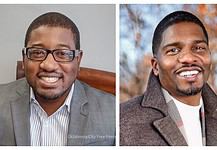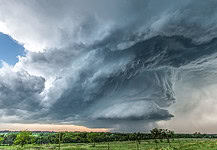Last Updated on February 11, 2024, 8:56 AM | Published: February 11, 2024
It’s no secret that Oklahoma’s history is filled with a host of monumental Black figures at the forefront of arts, education, and activism, often taking a lead role in the historical development of the state tracing back to the earliest days of statehood and even well before.
Clara Luper is perhaps our state’s most celebrated and honored activist and cultural leader, Ralph Ellison our greatest writer and thinker, and Charlie Christian our most groundbreaking and trailblazing musician.
But while those names forever deserve the honor and remembrance they’re granted throughout our city and state, there are also countless other incalculably impactful Black figures that have led the march of history through Oklahoma’s life.
So let’s take a look at just some of the numerous other legends of Oklahoma’s Black History whose impacts and legacies you might not know.
Zelia Breaux
When you think of the greatest musical figures in Oklahoma’s Black history, your mind is likely to go to the giant jazz influence of Charlie Christian or even the gravitationally heavy 70s funk of The Gap Band.

But long before those names were carved into state history stone, it was Zelia Breaux that put Oklahoma on the musical map as the woman that brought music education first to Langston University (the state’s only historically Black college), then to segregated African American schools across the city in 1918. She even personally established and led the Douglass High School Band, turning it into a national contender.
“That was one of the preeminent high school bands in the state, maybe in the nation,” said Matthew Pearce, Ph.D., newly named State Historian of the Oklahoma Historical Society. “She was certainly influential as both a patron and a teacher for folks like Jimmy Rushing and Charlie Christian.”
Roscoe Dunjee
As the founder and editor of The Black Dispatch in 1914, Roscoe Dunjee was instrumental in spreading news, information, perspectives, and solidarity throughout the state at a time when Black voices were largely ignored and marginalized in the world of journalism.
Through The Dispatch, the Black community of OKC – often of the state and nation as a whole – had a voice, a national identity, and a source for engagement.

Alongside the masthead of The Black Dispatch was printed the paper’s – and Dunjee’s – mission statement:
“We stand for the right of the voice of men to be heard in their own Government. For Democracy that is an actuality – not ritualistic.”
That stance was arguably never tested more directly or tragically than in the days following one of America’s darkest and most vile events.
“The Tulsa Massacre destroyed the Black-owned newspapers of Tulsa,” Pearce explained. “So it was Roscoe Dunjee who was really the first to report what was really happening there in The Black Dispatch. He was able to step up and really chronicle what was going on. He was a significant figure.”
E. Melvin Porter
Born in Okmulgee, but galvanized into a legal and political giant right here in Oklahoma City, Edward Melvin Porter was the very first African American ever elected to the Oklahoma State Senate, representing District 48 for twenty-two years.
But before his hard-fought and hard-won success in state-level politics, Porter served as President of the Oklahoma City NAACP beginning in 1961, positioning him to be an integral leader of the Civil Rights Movement in OKC.

Porter provided legal aid and representation for protesters and activists and even assisted Luper and others directly in the organization of marches and the tide-turning sit-in protests that swept the city.
Those partnerships would extend through years and through the continually changing landscape of Civil Rights progress and the intrinsically intertwined struggles for labor rights and racial equality.
“Especially with an event like the sanitation workers’ strike of 1969 in Oklahoma City,” said Pearce, “Luper and Porter were two of the most important figures in organizing the strike and organizing the demonstrations.”
Walter & Frances Edwards
Without Walter & Frances Edwards, it’s possible that there never would have been a cohesive Black economic community in Oklahoma City.
Walter was a widely diverse and accomplished entrepreneur, owning and operating everything from gas stations to taxi companies to pharmacies to a foundry, even weathering the Stock Market Crash of 1929 by selling off scrap metal.
But it’s the Edwards’ contributions to housing that cemented their legacy and importance and effectively created the city’s Eastside.

Working to develop a legitimate housing market for OKC’s Black residents at a time when housing and home-owning regulations were strictly segregated and regulated, the couple successfully secured thirty-three acres in the city’s northeast by slyly persuading a white man to plat the land. Walter then accomplished the Herculean feat of convincing the Federal Housing Authority to approve Black mortgages, an historic first.
The Edwards went on to build more than 800 houses in Northeast OKC, as well as a full surrounding community of churches, schools, and the South’s first-ever Black-owned-and-operated hospital.
They sold their top-quality homes for a greatly reduced price in order to ensure that the city’s Black residents of the time could afford them.
“Oklahoma City loves to promote the history of our builders and developers, like Classen and Nichols and Overholser,” said Pearce, “and oftentimes, Walter and Frances get overlooked.”
Many more at the Oklahoma Historical Society
The trailblazing people and stories covered here are just a small fraction of the integral, indivisible importance of Black History on the city and the entire state of Oklahoma.
As has been said for generations, Black History is Oklahoma History.
To explore more about these figures and countless others, and to learn about the many trials, tribulations, jubilations, and events that shaped and defined the Black culture of Oklahoma, visit the Oklahoma Historical Society’s sprawling, dedicated resource page at okhistory.org/blackhistory this month, or any month.
Brett Fieldcamp has been covering arts, entertainment, news, housing, and culture in Oklahoma for nearly 15 years, writing for several local and state publications. He’s also a musician and songwriter and holds a certification as Specialist of Spirits from The Society of Wine Educators.











